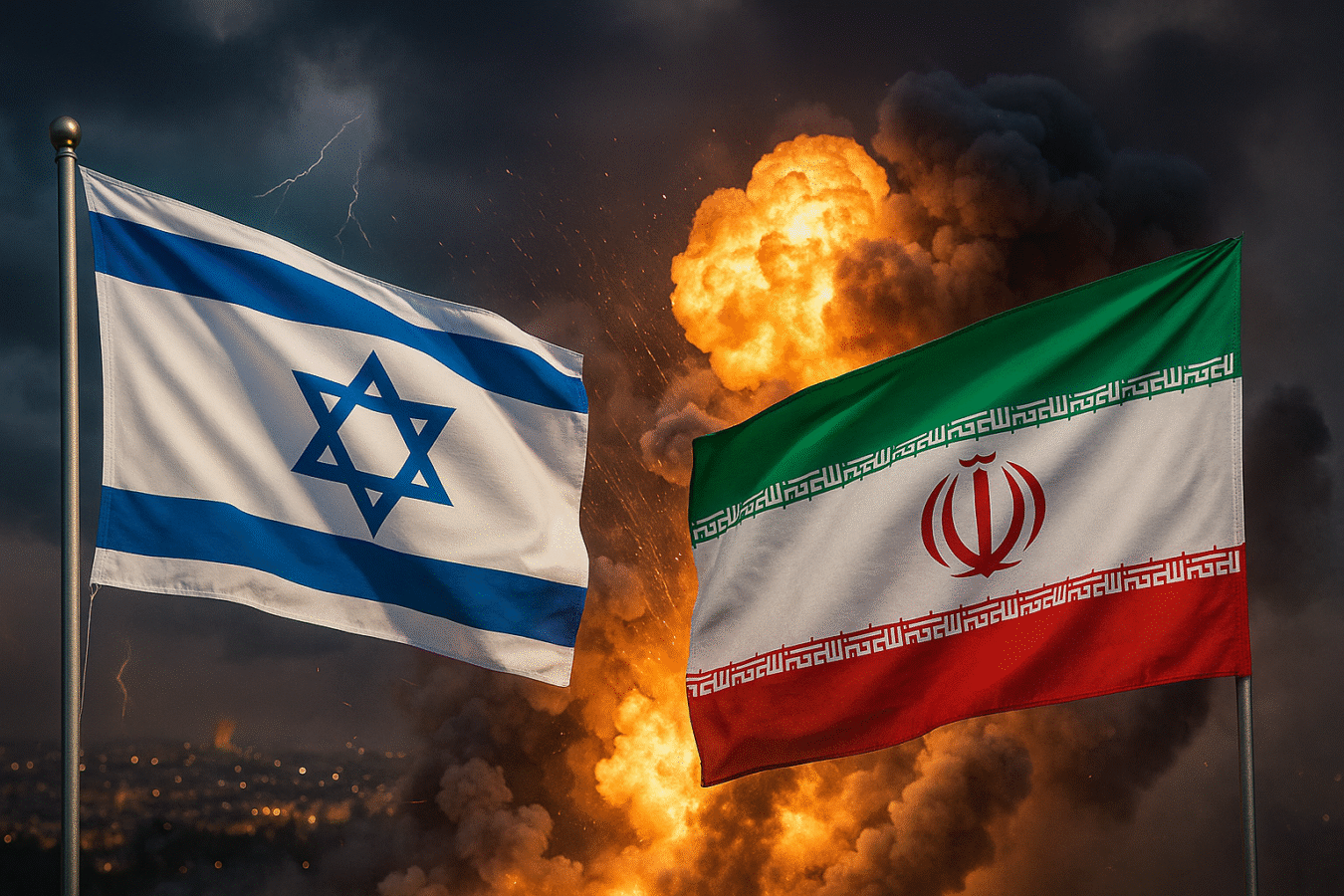In recent months, the tensions between Israel and Iran have crossed a dangerous threshold. What was once a covert “shadow war” of cyberattacks and proxy battles has now taken the shape of open hostilities. This shift in the West Asian power equation carries deep and long-term implications for India.
Let’s break it down simply — what’s really happening, why it matters, and how India is caught in the middle of it all.
🔥 The Background: Why Are Israel and Iran at War?
To understand this conflict, we need to look at both ideology and geopolitics:
- Iran does not recognize Israel’s right to exist. It supports militant groups like Hezbollah in Lebanon and Hamas in Gaza who frequently clash with Israeli forces.
- Israel sees Iran’s nuclear ambitions as a direct threat, and its air force has repeatedly bombed Iranian facilities in Syria to curb arms smuggling.
This isn’t a traditional war — it’s been a silent, undeclared war for over a decade, but now it’s getting louder, more dangerous, and more visible.
📅 Key Events That Escalated Tensions
- Assassinations & Sabotage (2020–2023): Iran’s nuclear scientist Mohsen Fakhrizadeh was assassinated — Iran blamed Israel. Israeli-linked oil tankers were attacked in the Red Sea.
- Drone & Missile Strikes (2024): Iran launched over 300 drones and missiles at Israel — an unprecedented act. Israel retaliated with deep airstrikes inside Iran.
- Cyber Warfare: Iran targeted Israeli water systems and banks. Israel allegedly shut down Iranian power grids temporarily.
- Proxy Escalation: Hezbollah fired rockets from Lebanon. Houthis in Yemen (Iran-backed) attacked shipping routes near the Red Sea.
🇮🇳 India’s Tightrope: Caught Between Two Allies
India has deep strategic ties with both Israel and Iran:
- With Israel: India imports high-tech weapons, drones, surveillance equipment, and cyber-defense systems. Our diplomatic and defense relations are strong and growing.
- With Iran: India depends on it for energy security and the Chabahar Port project, which provides land access to Central Asia and Afghanistan, bypassing Pakistan.
So when these two countries clash, India faces a dilemma: how to stay neutral without losing friends?
⚠️ Direct Implications for India
- Energy Prices: Oil prices have surged due to instability. India, being the world’s third-largest oil importer, feels the pressure immediately.
- Trade Route Security: Attacks in the Strait of Hormuz and Red Sea affect Indian shipping lanes. India had to deploy naval vessels for protection.
- Indian Diaspora Safety: Thousands of Indians live and work in Israel and the Gulf. They could be caught in any regional escalation.
- Strategic Delays: The Chabahar Port project may suffer setbacks if tensions in Iran grow.
- Internal Security Concerns: Indian intelligence agencies are monitoring for religious or cyber spillovers.
🧠 A Critical Take: Can India Afford to Stay Silent?
India’s diplomatic stance so far has been cautious — urging restraint and dialogue. But silence is not always neutrality. As a rising power, India needs to:
- Speak for peace, but also protect its core interests.
- Diversify oil imports to reduce dependence on the Gulf.
- Strengthen naval presence in the Arabian Sea and Indian Ocean.
- Use global platforms like BRICS or G20 to promote regional stability.
This is also an opportunity for India to assert itself as a responsible global player, not just a cautious observer.
🌍 Conclusion: A Distant War, A Local Risk
The Israel-Iran conflict may seem far from Indian borders, but in today’s world, no region is truly isolated. Every drone strike or cyberattack sends shockwaves across oil prices, shipping lanes, and global diplomacy.
India must pursue a policy of strategic autonomy — staying firm on its interests, while playing an active role in preventing further escalation. For a nation deeply integrated into global trade and diplomacy, this war is not just a headline — it is a potential disruption to our economy, security, and foreign policy.
